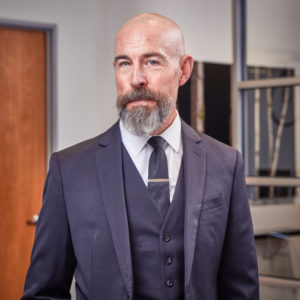Finding mentorship and the rewards that come through good mentoring
The lawyer sat watching the law school graduation. The audience seemed particularly jubilant. The school, which for over a century has provided law degrees for working people, attracted an amazingly diverse student body. Not just the first in the family to become a lawyer but for many the first to go to college. The folks here did it the hard way – they earned it. The joy was more contagious than the pandemic that isolated them from classrooms onto video platforms through most of their schooling. More than a few were paralegals making the jump. All this made the lawyer think about the encouragement the lawyer received at a critical point from mentors directing the lawyer toward law school, and how different life would have been without that mentorship before, during, and after law school.
Wind in the sails
Receiving good mentorship requires luck and effort, typically with more of one to make up for the absence of the other. A few firms have formal mentorship programs. That’s luck, but it still requires effort. Mandatory mentorship sometimes doesn’t translate to skilled or passionate mentorship. Regardless of whether there’s formal or informal mentorship, it falls to the learner to politely grab a mentor’s attention. Without formal mentorship that can be as simple as asking someone inspiring if they’d be willing to be a mentor. Then follow up with the person to get training and opportunities. That person doesn’t need to be in the same firm, either. With firms that are too small or too busy, consider making connections in local lawyer organizations to locate a strong mentor.
Once the mentor is identified, volunteer. Is the mentor preparing for a deposition? Offer to do the groundwork, the outline, and go with to take notes. Ask for feedback on the work performed, and as the volunteering continues, seek opportunities to do the do with mentor feedback.
The Clone Wars
For us older lawyers, the time comes to give back and mentor. An initial step: select mentees intentionally. We unconsciously surround ourselves with similar people. That college buddy’s son who wants an internship may not need the opportunity as much as someone else who has walked a tougher path. Take the extra effort to mentor those who look different, think different, and have different backgrounds than one’s own. Our mentorship choices can help diversify what continues to be an all too homogenous profession.
Good mentoring also includes accepting generational differences. Eighty-hour work weeks may have worked for some of us. Kids these days are different. Judging them for different values is shortsighted. There’s value in the work/life balance that the workaholic generation can learn from younger folks, as long as the work gets done. That requires one to plan and stage assignments, ultimately improving one’s own lawyering.
Remember to ask the mentee about long term goals and support them. Don’t assume they want to become a mini-me. Becoming a lawyer in full requires becoming comfortable in one’s own skin. Watching and learning from others provides opportunities to adopt some of their techniques. Ultimately though a lawyer becomes unique by embracing their own passions and playing to their strengths though.
My shadow
Folks can’t learn without opportunities. Recognize that mentoring is a time investment, not an immediate revenue generator. That means slowing down to show the mentee what one is doing and why. It means providing opportunities to observe, including taking them to depositions, mediations, and trials. And it means after watching, letting them do while observing and providing feedback. Let them take chances while providing a safety net. That’s not handing off jury selection for the first time ever on a complicated case. It does however mean giving them real challenges with real risks, along with the sweaty palms both mentor and mentee will get during the process. That can include letting the learner take things in a direction one doesn’t necessarily agree with. I recall preparing what I considered to be a devastating expert cross-examination, being told by my mentor that part of my approach was unwise, and then having the expert wipe the floor with me when I persisted with the approach. Having opportunities to make recoverable mistakes deeply ingrains those lessons.
Finally, be available. This means setting regular one-on-ones, responding to texts and phone calls, reviewing drafts, and providing candid feedback. Candid doesn’t mean unkind. It does mean being direct, however, including articulating what works, what doesn’t, and giving recommendations about what else one might include.
Outro
Back to our lawyer at the law school graduation. The lawyer thought about the mentoring the lawyer now provided, the number of paralegals-turned-lawyers at the firm, and the rewarding sense provided by seeing the practice through more junior eyes. Where had the decades gone?
About Miles B. Cooper
Miles B. Cooper is a partner at Coopers LLP, where they help the seriously injured, people grieving the loss of loved ones, preventable disaster victims, and all bicyclists. Miles also consults on trial matters and associates in as trial counsel. He has served as lead counsel, co-counsel, second seat, and schlepper over his career, and is an American Board of Trial Advocates member. He would not be where he is today in his practice without the benefit of outstanding mentoring from top-flight trial lawyers, including Cynthia McGuinn and Bill Veen.


